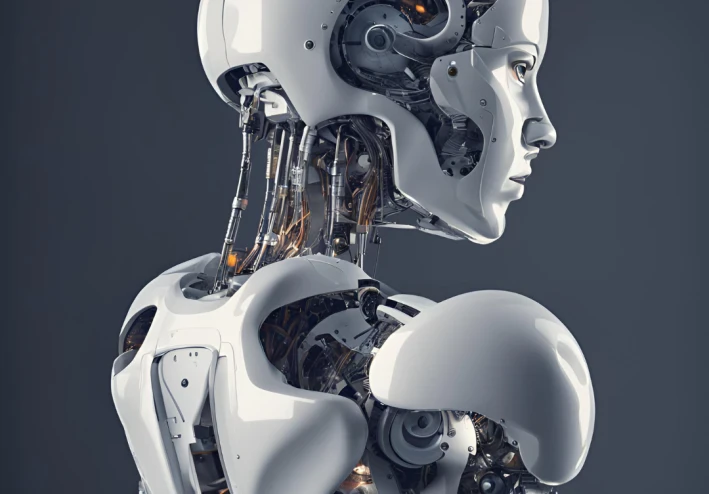
Everyday Applications of Artificial Intelligence You Never Knew
Artificial Intelligence (AI)
Artificial Intelligence (AI) has seamlessly integrated into our daily lives, often in ways we might not even realize. From enhancing our convenience to transforming entire industries, AI's impact is profound and widespread. Here, we explore some of the lesser-known applications of AI that are shaping our everyday experiences

1. Smart Home Devices
Beyond the well-known AI assistants like Alexa and Google Home, AI is embedded in many smart home devices. AI-driven thermostats learn your schedule and preferences to optimize energy use, while smart refrigerators can suggest recipes based on the ingredients they contain
2. Email Filtering
AI plays a crucial role in managing your email inbox. Machine learning algorithms identify spam, prioritize important messages, and categorize emails. Gmail, for example, uses AI to offer smart replies and nudges to remind you about unanswered emails.

3. Online Shopping Recommendations
E-commerce platforms like Amazon use AI to analyze your browsing and purchase history. This data helps generate personalized product recommendations, enhancing your shopping experience by suggesting items you might need or like
4. The Unseen AI Editors in Grammar and Writing Enhancement Tools
Artificial Intelligence operates discreetly in the realm of grammar and writing enhancement tools, turning them into indispensable assistants for writers and editors. Such AI systems comprehensively analyze text for grammatical accuracy, punctuation, and stylistic consistency. They incorporate complex algorithms that learn from vast databases of language use, enabling them to suggest improvements and provide real-time corrections. These AI editors go beyond mere spellcheck functions; they offer context-aware recommendations, spot redundancy, and enhance clarity of expression, thereby refining the overall writing quality. With their assistance, users not only correct their mistakes but also learn to become better writers, making these tools a silent yet powerful force in improving written communication
5. Banking and Fraud Detection

AI helps secure your financial transactions by monitoring patterns and detecting unusual activities. Banks use machine learning algorithms to identify fraudulent transactions and alert customers in real-time, reducing the risk of financial fraud.
6. Language Translation
AI-powered translation tools like Google Translate enable real-time communication across languages. These tools use neural networks to improve the accuracy of translations, making it easier to understand and be understood in different languages.
7. Social Media

Social media platforms like Facebook and Instagram use AI to curate your feed, suggest friends, and display targeted advertisements. AI analyzes your interactions to present content that is most relevant to you, enhancing your social media experience.
8. Customer Support Chatbots
Many websites and apps use AI-powered chatbots to provide instant customer support. These chatbots handle inquiries, resolve issues, and provide information, offering a seamless customer service experience without the need for human intervention.
9. Ride-Hailing Services
AI algorithms in ride-hailing apps like Uber and Lyft match riders with drivers, determine optimal routes, and predict demand. This ensures efficient and timely rides, reducing wait times and improving overall user satisfaction.
10. Fitness Trackers
Fitness trackers and smartwatches, such as Fitbit and Apple Watch, use AI to monitor your physical activity, heart rate, and sleep patterns. These devices provide insights and recommendations to help you maintain a healthy lifestyle.
Conclusion
AI's integration into everyday life continues to grow, offering innovative solutions and enhancing various aspects of our daily routines. From smart homes and email filtering to personalized shopping and fitness tracking, AI's applications are vast and impactful. As technology advances, the potential for AI to further improve our lives is boundless.





































